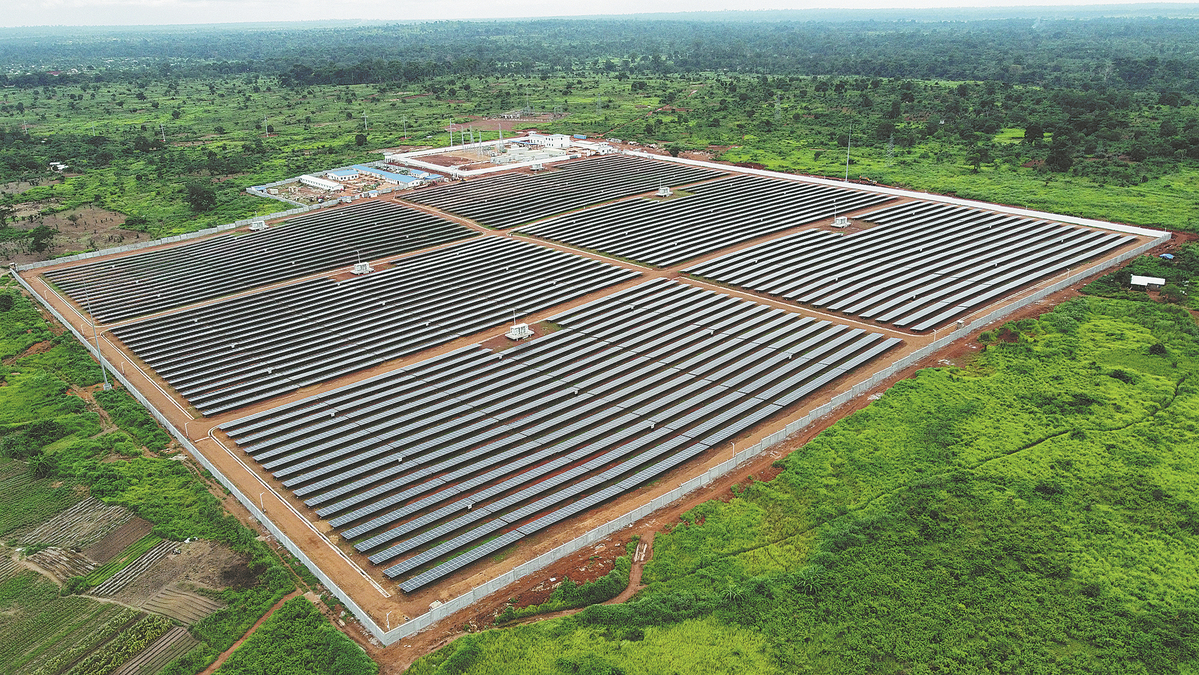Climate change exacts heavy toll on Africa
By EDITH MUTETHYA | China Daily | Updated: 2022-12-20 07:05

Developing renewables
South Africa's President Cyril Ramaphosa said the country will give priority to investment in developing renewable energy sources to switch to a low-carbon economy, and Kenya's President William Ruto reiterated the country's commitment to making use of its rich green energy resources, such as hydro and solar power, to develop clean energy, and called for international collaboration to help Africa develop green industries.
Africa, with rich resources in clean energy, has great potential in developing renewable energy, which can bridge gaps between supply and demand in energy while reducing carbon emissions.
Africa's solar potential stands at 7,900 gigawatts, with South Africa and Egypt being the largest solar producers, the International Energy Agency says.
The agency estimates that the continent has wind generating potential of 461 gigawatts, with Algeria, Ethiopia, Namibia and Mauritania possessing the greatest potential.
With African countries now committed to developing clean energy to reduce greenhouse gas emissions, experts forecast increased Sino-Africa collaboration in the area.
"Green energy is now an important component of China-Africa cooperation," said Cavince Adhere, a scholar of international relations in Kenya with a focus on China-Africa relations, adding that China has shown a willingness to partner with African countries in terms of green energy transition.
"China has been very pragmatic and constructive in the implementation of different energy projects in Africa like wind, solar and hydropower, and we look forward to more partnerships in that area."
China is home to the most advanced technologies of green energy, and it is also the biggest supplier of green energy equipment to Africa and a big financier of green energy projects, he said.
Within the framework of the Forum on China-Africa Cooperation, a major platform for bilateral collaboration, China has implemented about 100 clean energy and green development projects in recent years.
These include Garissa solar plant, the largest grid-connected solar power plant in East Africa. Since it was put into operation in 2019, the plant has generated enough electricity annually to meet the demands of more than 380,000 people.
In addition, Kafue Gorge hydroelectric station in Zambia, the Aysha wind power project in Ethiopia and Sakai solar power station in the Central African Republic are all providing clean energy to locals.
About 160 kilometers south of Kenya's capital Nairobi, Thwake dam, the biggest multipurpose dam being built in the country, is 80 percent complete.
The dam, being built by China Gezhouba Group, will have a storage capacity of 688 million cubic meters.
Wang Wen, a project manager for the project, said that once the project is completed next year it will supply water and generate electricity for millions of locals. In the future more similar hydropower projects may be built by the company through collaboration with African countries, he said.
Between 2010 and 2019 China provided $19 billion for renewable energy investments in Africa, mainly hydropower, the International Renewable Energy Agency says.
Africa needs a $190 billion annual investment between 2026 and 2030 to achieve its energy and climate goals, with two-thirds of the funds going to clean energy, the International Energy Agency says.
Unlike US-Africa collaboration, which is long on talk but short on deliveries, China's collaboration with the continent puts a premium on action, Adhere said.
"When African leaders think about the pragmatic outcomes in its cooperation with China, it makes China a more dependable partner in terms of implementing infrastructure projects."
To fully benefit from collaboration on renewable energy, Adhere said, African countries should realign their development priorities with the capabilities that China offers.
"Since China is the largest producer of solar panels, if any African country is interested in having solar energy, then the partner of choice should be China."
Adhere suggests that African countries should also be pragmatic in their approach, so that they take responsibility for planned projects and ensure they are sustainable and impactful.
























